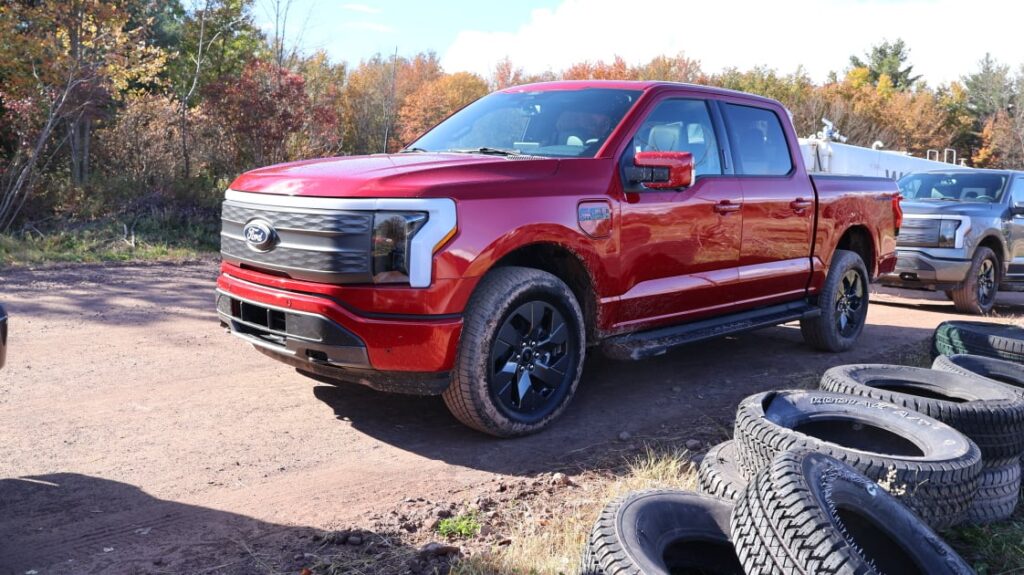Don’t miss out on our latest stories. Add PCMag as a preferred source on Google.
The Ford F-150 Lightning’s days might be numbered as company executives debate whether to discontinue it, The Wall Street Journal reports.
It would be the first major loss for electric car shoppers since the end of the federal tax credit. Just as Ford’s bold decision to electrify America’s bestselling pickup made waves in 2022, discontinuing it would mark the end of an era.
“We don’t comment on speculation about future product plans,” Ford communications manager Ian Thibodeau tells us. “What I can say is that F-150 Lightning is the best-selling electric pickup truck in the US—despite new competition from Cybertruck, Chevy, GMC, Hummer, and Rivian—and delivered record sales in Q3.”
Ford paused production on the electric pickup indefinitely in late October after a fire at an aluminum supplier’s factory. The company said it would focus on more “profitable” gas and hybrid trucks, even though it beat its third-quarter earnings expectations, Electrek reports.
Despite stopping production, Thibodeau tells us that Ford has “good inventories” of the F-150 Lightning that it can distribute to customers. However, extra inventory could be a sign that demand for the truck has not met expectations, slowed down, or perhaps stagnated. Last month, Ford’s overall EV sales fell 24% year-over-year, according to the Journal.
Get Our Best Stories!
Your Daily Dose of Our Top Tech News
Sign up for our What’s New Now newsletter to receive the latest news, best new products, and expert advice from the editors of PCMag.
Sign up for our What’s New Now newsletter to receive the latest news, best new products, and expert advice from the editors of PCMag.
By clicking Sign Me Up, you confirm you are 16+ and agree to our Terms of Use and Privacy Policy.
Thanks for signing up!
Your subscription has been confirmed. Keep an eye on your inbox!
Ford plans to revive production at the Rouge Electric Vehicle Center “at the right time, but we don’t have an exact date at this time,” Thibodeau says.
Even if Ford discontinues the Lightning, it might simply do so temporarily and then reintroduce it with different specifications, as General Motors did with the Bolt. In 2023, GM removed the Bolt from the market to develop a version with an updated, more affordable LFP battery pack. It’s now set to return in January 2026.
Ford is also working on a “universal” EV lineup, powered by LFP batteries. It plans to debut a pickup truck under $30,000 in 2027. That’s a steep drop from the F-150 Lightning’s $54,780 starting price, although in 2023 Ford told us LFP batteries drain even faster when towing, which is one of their major trade-offs. The $30,000 truck could be an entry-level option, while pricier trims offer more energy-dense packs with greater towing power.
Recommended by Our Editors
Another option that would preserve towing power and alleviate range anxiety would be a pivot to an extended-range electric vehicle (EREV), which has both a gas tank and a battery, but in a different way than a traditional hybrid. The battery powers the drivetrain, and it’s charged by the gas tank rather than an external plug-in.
Ram is launching an EREV pickup truck in 2026, the 1500 REV, which it first intended to make as a fully electric car, and has since pivoted to an EREV. Hyundai will debut an EREV in 2027, pushed back from 2026. A new startup backed by Volkswagen, called Scout Motors, is working on its first two models, and says nearly all of its customer reservations are for the EREV rather than the fully electric models, InsideEVs reports.
The third, and most anticlimactic option, would be Ford killing all electrification projects and sticking with the basic hybrid F-150 Lightning, which it already offers. Last year, however, CEO Jim Farley was all-in on EVs (“I love electric vehicles and it has nothing to do with politics”), so that’s not as likely.
About Our Expert
Emily Forlini
Senior Reporter
Experience
As a news and features writer at PCMag, I cover the biggest tech trends that shape the way we live and work. I specialize in on-the-ground reporting, uncovering stories from the people who are at the center of change—whether that’s the CEO of a high-valued startup or an everyday person taking on Big Tech. I also cover daily tech news and breaking stories, contextualizing them so you get the full picture.
I came to journalism from a previous career working in Big Tech on the West Coast. That experience gave me an up-close view of how software works and how business strategies shift over time. Now that I have my master’s in journalism from Northwestern University, I couple my insider knowledge and reporting chops to help answer the big question: Where is this all going?
Read Full Bio

